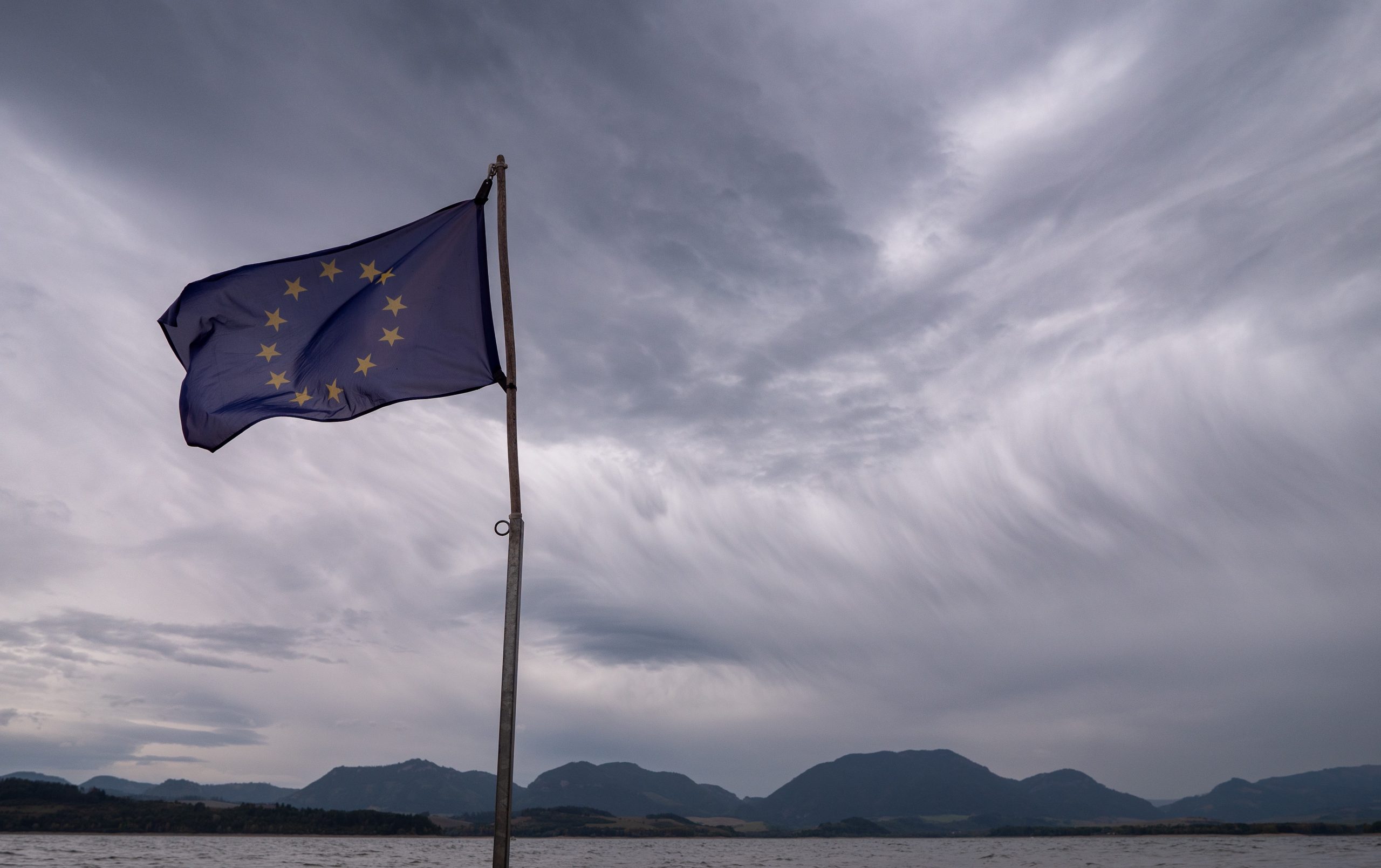The invasion of Ukraine by Russia in 2022 ought to have been Europe’s final wake-up call—final being the operative word. It followed a string of earlier alarms: Georgia in 2008, Crimea in 2014, and the shadowy outposts of Transnistria and Belarus. Yet Europe failed to respond decisively, a pattern mirrored in conflicts further afield, from Syria to Mali and the motif of malign foreign intervention. These crises are not isolated but interconnected threads in a larger web of geopolitical rivalry, a netting of primal and elemental friction. They underscore an uncomfortable truth: Europe’s reluctance to confront these threats has left it perilously exposed.
Tim Marshall’s Prisoners of Geography aptly quotes Churchill on Russia: Great Powers think in spans of 50 or 100 years. For Europe, the question of forward-thinking strategy remains unresolved. Will its collective future coalesce into a unified blue banner with yellow stars—or risk fading into irrelevance altogether? The pressing question: has Europe already run out of time?
Since World War II, the United States has built its global influence on the foundation of a stable, peaceful Europe—a reliable ally and vital springboard for power projection. But what happens if President Trump openly states—what has been quietly evident since 2013—that America’s focus has shifted from Europe to China? And what if he does so in true Trump fashion: abruptly, without warning, and with immediate effect? The relative stability of this era lulled many European nations into slashing defence budgets, convinced war was a relic of the past. Armies pivoted towards overseas interventions, leaving homeland defence to wither.
Europe turned a blind eye to the mounting threats mentioned above, where Russia and China began challenging the U.S.-led international order. We dismissed the fallout of globalisation—industrial decline, waning competitiveness, fraying social cohesion, and growing disillusionment with politics as usual.
During his 2016 presidential campaign, Trump tapped into widespread public frustration. Many Americans resented the costs of global leadership, angry that taxpayer money funded foreign endeavours while domestic struggles went unaddressed. His ‘America First’ rhetoric and insistence that allies shoulder more of the burden struck a chord. Across the Atlantic, many failed to grasp that Trump’s views, though loudest, reflected a deeper sentiment within the U.S. political establishment. Even President Obama had shifted focus from Europe and the Middle East to the Indo-Pacific. The notion that Europe could simply ‘wait out’ Trump’s presidency was always naive. While the Biden administration reprioritised European security during the Ukraine war, it was a temporary adjustment, not a strategic pivot. Future U.S. leaders may be less abrupt than Trump, but the underlying expectation remains: Europe must take far greater responsibility for its defence.
The title borrows from Shakespeare’s Julius Caesar: ‘Cowards die many times before their deaths.’ It’s a fitting lens for today’s shifting geopolitics. Europe stands at a crossroads—either it rises to the moment with resolve or succumbs to one of three damning flaws: ignorance of the transformation, cowardice in confronting it, or, perhaps worst of all, an incapacity to comprehend it. Ignorance lets threats fester—Russia’s march on Crimea, Wagner’s chaos in Africa. Cowardice avoids hard choices, retreating from decisive action. Incapacity, bound by bureaucracy and weakness, leaves Europe vulnerable, its security ambitions still unfulfilled.
The same play offers another enduring truth: ‘Men at some time are masters of their fates.’ It reminds us that ‘the fault is not in our stars,’ but rather ‘in ourselves, that we are underlings.’ These words challenge us to own our choices and rise above complacency. Europe’s defence shortfalls leave it perilously exposed to Russian aggression and risk fracturing transatlantic ties. Preserving U.S. partnership demands that Europe take decisive action—redefining shared security priorities and addressing global threats posed by China, Iran, North Korea, and Russia. Confronting these challenges requires unified, collective action; neither Europe nor the U.S. can succeed in isolation. Should Europe fail to establish itself as a credible security force, the fragile peace of recent decades could shatter, ushering war back onto the continent.
War has already returned to the continent—though, in truth, it never fully departed. We were quick to forget the Yugoslav Wars. We shrugged off the Balkans as peripheral to Europe’s core identity—a grave mistake. Ignorance dismisses their strategic weight, allowing Russian and Chinese influence to creep unchecked. Cowardice hesitates, delaying EU integration and leaving a vacuum of leadership. Incapacity binds Europe, its fragmented policies and underwhelming security presence fail to secure a region vital to its future stability. That same error repeated in Crimea just 13 years later, barely a generation apart. In the intervening years, Europe and NATO shifted from viewing Russia as a strategic partner in the Partnership for Peace to confronting it as a grim adversary. Even before February 2022, when US and UK intelligence warned of an imminent invasion, we chose to dismiss the warnings, repeating a cycle of denial.
Thus, we have an axiom, taken to be true, to serve as a premise or starting point for further reasoning and argument. ‘Cowards die many times before their deaths’. The issue though is that you never really know when that precious last draw of breath takes place. Or even if Europe has indeed breathed its last.
Dimitris Kollias is a Junior Research Fellow – Programme Manager, ELIAMEP



